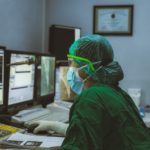 Hospitals and other healthcare providers are seldom shy in publicizing their investments in IT, but does this investment boost the reputation of the hospitals themselves? That was the question posed by a recent study from Cambridge’s Judge Business School.
Hospitals and other healthcare providers are seldom shy in publicizing their investments in IT, but does this investment boost the reputation of the hospitals themselves? That was the question posed by a recent study from Cambridge’s Judge Business School.
The study shows that while investing in IT personnel can result in a spike in media coverage, and therefore make a hospital more well known, when hospitals invest in IT equipment it tends to affect the tenor of the coverage, with many articles covering the investment negatively.
“The tone of such media coverage is important, because most patients are unable to gauge a hospital’s quality of care directly and therefore consider a hospital’s reputation in the media when making healthcare decisions,” the researchers say. “The study finds that investing in IT equipment triggers journalists to write less negatively (rather than more positively) about a hospital – and thus can buffer hospitals from negative press and help them sustain their reputations in the media. While investing in IT staff results in more coverage, it does not improve the tone of coverage – and this is an important distinction.”
IT savvy
The researchers analyzed around 175,000 articles referring to IT investment decisions made by over 150 English hospitals. They also analyzed interviews with editors and hospital administrators in England and the United States. The IT investments covered include that in hardware and software, personnel, and on maintenance investments.
The researchers attempt to control for factors that may influence the reputation of a hospital, such as the size of the hospital, the patient workload, inpatient length of stay, and differences in hospital effectiveness as reflected in a hospital’s risk-adjusted inpatient mortality.
The authors believe their findings are valuable because most previous analyses of IT expenditure have focused on things like the efficiency improvements delivered rather than any reputational changes.
“IT serves as a signal for unobservable organizational characteristics such as information processing capabilities or general organizational fitness,” the researchers say. “IT investments can serve as signals for superior information processing, state-of-the-art healthcare, and for being a modern hospital that is likely to influence patients’ choice.”
They believe that with Covid not only showing the value of IT investments across healthcare in terms of patient experience but also highlighting the value of investments in areas such as cybersecurity, it’s important that healthcare managers understand how any investments in these areas might be perceived.